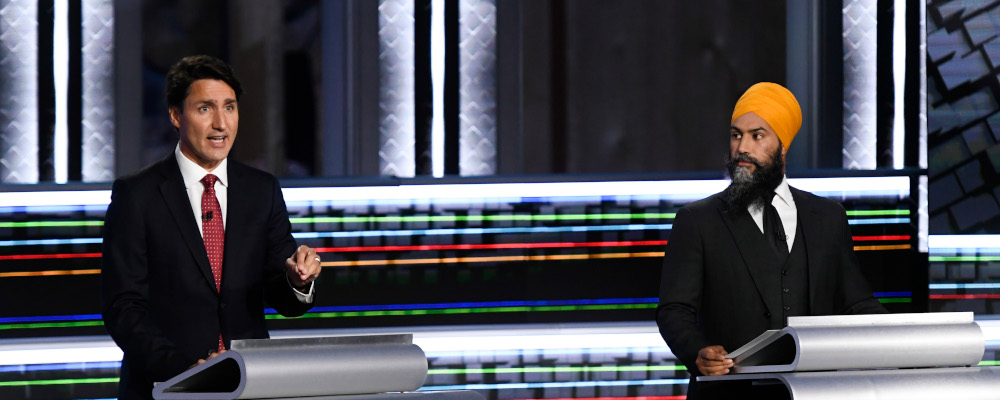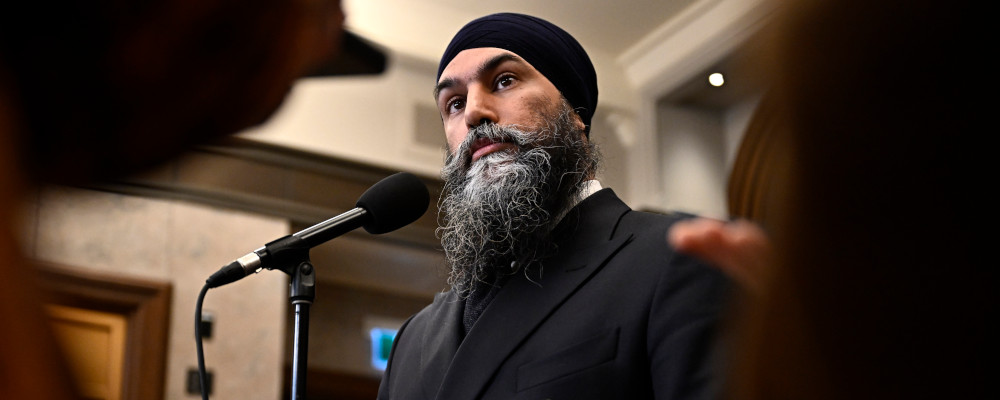What is the point of the federal New Democratic Party? It would appear that it’s not to win elections. That’s fine, as far as it goes. There are other purposes for political parties. Some are single or double-issue protest parties, like the Christian Heritage Party, but those tend to be very small, rarely if ever winning seats in Parliament. There are regional parties, like the Bloc Québécois, which runs candidates only in Quebec, advancing their narrow interests with some success. There have historically been splinter parties, like Alberta’s Wildrose Party or the Reform Party, each of which, by splitting historic voting coalitions, had influence over their movements’ reunifications, altering the makeup of the future United Conservative and federal Conservative parties forever.
But none of these alternative strategic imperatives or political identities applies to the NDP, which despite meagre election results, both in the popular vote and seat count, continues to insist that we take it seriously as a mainstream party.
But why should we? Since the so-called Orange Crush of 2011, when Jack Layton brought the federal NDP up to 103 seats in the House of Commons and official opposition status, the NDP has been on a steady political decline. They dropped down to 44 seats in 2015, 24 in 2019, and essentially held in 2021, gaining one seat. While the grand narrative of the last few elections has focused on Trudeau besting his primary opponents in Canada’s Conservatives, his utter dominance over the NDP, convincing progressive voters at every turn that to stop the right-wing bogeyman they’d have to vote Liberal, is an under-discussed dynamic. It also seems to be an under-examined phenomenon when it comes to the NDP’s own political strategy.

In 2021, when the Liberal seat count reduced their 2019 minority even further, the NDP should have seen their opportunity. As the Conservatives grappled with their loss and contemplated new leadership, the NDP could have used their balance of power to wedge the Liberals. Instead, they struck a deal to reliably prop them up in exchange for the square root of nothing, giving the Liberals a coalition without the sacrifice of cabinet seats, and letting the government take credit for NDP policy ideas (as they always have), not even holding them accountable for funding and execution.
And you can’t chalk the nature of this bad-deal dynamic up to a one-time negotiation. Just a few weeks ago, the NDP had the Liberals over a barrel. The government and the Liberal caucus were starkly divided on the NDP’s Israel-Palestine opposition day motion and by forcing it to a vote, the NDP could have laid bare its opponent’s disarray and incoherence. Instead, they agreed to last-minute amendments, allowing the government to whip the vote in favour, effectively neutralizing the political threat.
“But we got the policy win!”, some NDP pundits unconvincingly spun after the fact, flailing as they have for months, unable to point to a motive or end game for why their party seems so intent on perpetrating political malpractice. Since then, three more veteran NDP Members of Parliament announced they wouldn’t be re-offering in the next election, causing analysts to rightly remark that it would likely be Conservatives, not Liberals, picking up some of the non-incumbent ridings in the next election.
This is the challenge for the NDP in 2024. Despite the Liberal crash in popularity and the accessibility of previous Liberal voters, they have not been able to capitalize on converting them. Indeed, many from what would have traditionally been an NDP pool of supporters—working-class labour union members—make up Conservative leader Poilievre’s growing coalition. This should be all the more galling for NDP rank-and-file members when you consider that we’re in the middle of an affordability crisis. Canadians are lining up at food banks in record numbers. Isn’t this sort of supposed to be their party’s moment?
And herein lies the problem. Canada’s NDP were supposed to have a purpose. The party emerged from the cooperation of western agrarians and national trade unions, bringing together rural, urban, western, and eastern working-class people. But almost from the beginning, they struggled to reconcile their materialist left-wing economic inclinations with the trendy left-wing social causes of the day. It’s been working-class populists versus champagne socialists since day one.

In some of Canada’s provinces, particularly out west, NDP leaders like John Horgan have built winning working-class coalitions. But at the national level, particularly as public sector union members, comprising wealthier urbanites, crowd out lower-income private sector union workers, the party never seems to know what it stands for or who it’s speaking to, finding that the message designed to appeal to a downtown Toronto museum curator doesn’t really resonate with a boilermaker in Northern Ontario.
If the NDP want to break out of their downward election cycle trend, they need to give voters a reason to vote for them instead of the Liberals. And by the look of the upcoming budget, the Liberals aren’t going to make it easy for them. Breakfast programs, supports for renters—this isn’t the Liberal Party retaking the political centre, it’s them shoring up support by scooping NDP/Liberal switchers in urban centres. The NDP should look at where Liberals are wedded to stakeholders that they are not (corporate Canada comes to mind) and contemplate policies that would wedge the government and set them apart, creating some appeal for working-class Canadians fed up with the status quo.
Why not push for curtailing record-high immigration numbers? Make the argument that increasing labour supply suppresses wages, hurting Canadian paycheques and distorting the labour market. Why not push to protect more Canadian supply chains from trade exposure? Make the argument that unfettered free trade erodes onshore manufacturing employment and threatens the kind of good, high-paying union jobs our parents grew up with. Of course, we know why not. These arguments, while popular with working-class Canadians, are not on trend with our country’s urban elite. Unfortunately for the NDP, they’re what a party that wanted to win would consider talking about.
This brings us back to the opening question. The point of the federal NDP seems neither to be to win or even to advance a narrow cause. It seems simply to exist for its own sake, occasionally finding comfort in passing party policy resolutions that read like half-baked social studies masters’ theses. Maybe they’re OK with that. But it doesn’t mean the rest of us have to take them seriously.
Recommended for You

‘Our role is to ask uncomfortable questions’: The Full Press on why transgender issues are the third rail of Canadian journalism

Need to Know: Mark Carney’s digital services tax disaster

Theo Argitis: Carney is dismantling Trudeau’s tax legacy. How will he pay for his plan?

Kirk LaPointe: B.C.’s ferry fiasco is a perfectly Canadian controversy




